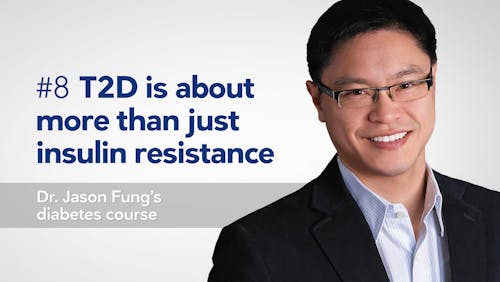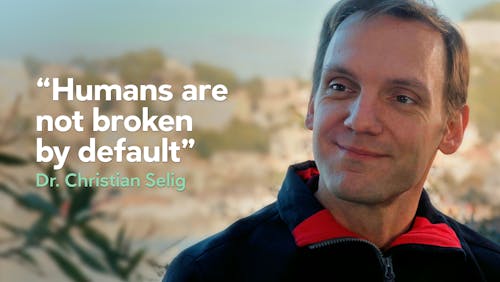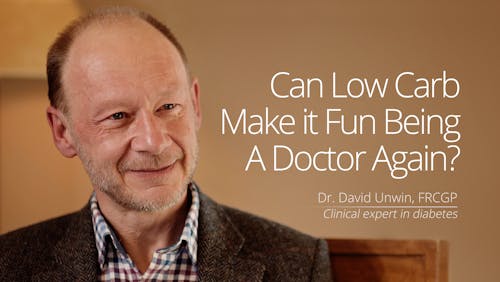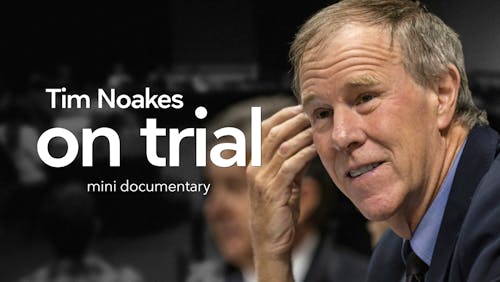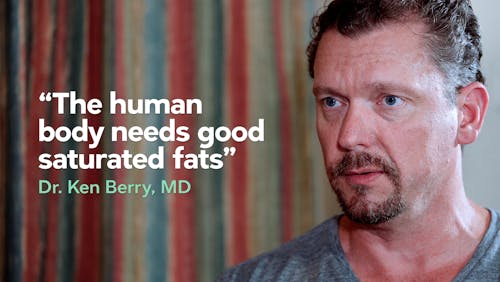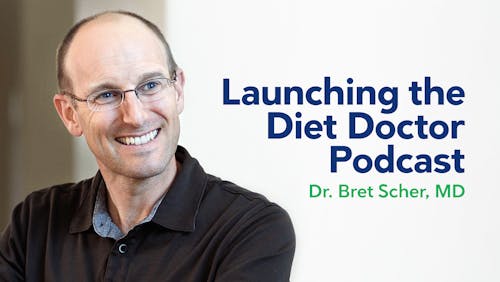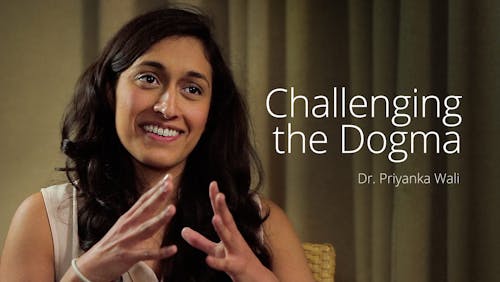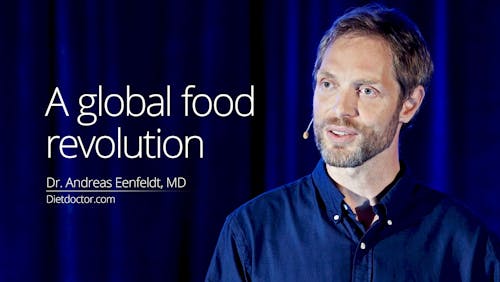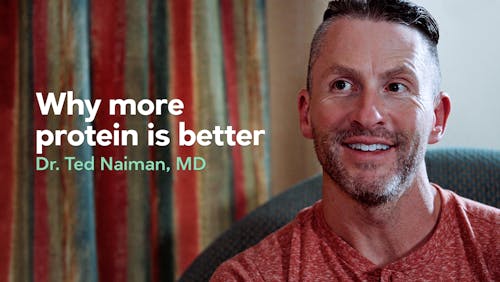Low-carb doctors proud to be counted: Six reasons why it matters to world health

In March 2019 we unveiled a new page featuring medical doctors from around the world who are proud to declare their passionate support for the low-carb, ketogenic diet — for weight loss, type 2 diabetes, and other chronic health conditions.
We’ve updated the page regularly since. It now features an interactive map with more than 400 doctors — from Africa, India, Asia, Australia, Europe, the USA and Canada.
These doctors have seen patients’ health transformed by a low-carb keto diet, and many have experienced their own personal health transformations.
Now, by publicly displaying their names, credentials and statements on the map they are collectively demonstrating that keto medicine is safe and effective at a time when other voices are claiming that low-carb ketogenic diets are a dangerous passing fad.
View list: Medical doctors recommending low carb or keto
“It’s amazing to see this map of doctors taking shape, doctors who are empowering their patients to dramatically improve their health, using an evidence-based lifestyle intervention,” says Dr. Andreas Eenfeldt. “These doctors are brave enough to speak up, even though it’s still controversial, because it’s important. Their example can help other doctors dare to use this knowledge, and ultimately help millions of people to a better life.”
We welcome more low carb doctors to join the list. In the first couple of months, I devoted most of my work-life to making this page come together — talking with doctors, emailing them, hearing their unique LCHF experiences, meeting them at the Low Carb Denver conference. I found this work moving and rewarding.
Why? Here are six reasons why I think this list matters:
- Patients need the help of knowledgeable and encouraging doctors
Millions of people with diabetes, excess weight, metabolic syndrome, high blood pressure and more might benefit from adopting a low-carbohydrate diet. In the US alone it is estimated that more than 80% of the adult population is now metabolically unhealthy — some 200 million people.1 Add in the rest of the world, and the estimate approaches 1 billion people. How will they know they could be helped if their doctors are afraid to tell them about or to support them in trying a low-carb approach? What if medical professionals actively discourage them away from trying it? Without their doctors’ support and encouragement, millions of people won’t know that good health may be as easy as changing the way they eat. Plus, if they take any medication, patients will need their doctors’ help to adjust their dosages and track their progress.This list not only shows patients that a growing medical community is willing to encourage and support them in this lifestyle change but it may even help them find an LCHF physician in their region who can help them.
- Safety in numbers
As little as a year ago, leading low-carb doctors like Dr. Gary Fettke in Australia were facing disruptive and stressful proceedings that threatened to strip them of their license to practice medicine. Fortunately, both were vindicated, but still both faced the turmoil, stress and disruption of these quasi-judicial processes.The growing numbers of notable and respected doctors standing up to be counted, however, provide evidence of growing professional consensus for the use of the diets, and reduce the chance that other doctors may facing similar hearings. There really is safety in numbers. - Reassurance and encouragement for doctors who still feel unsure, vulnerable or isolated
More than 100 doctors were at the Low Carb Denver conference at the beginning of March, but a number of them did not register as doctors, nor have their MD credential listed on their name tag. Why? They did not feel safe yet “coming out” as a doctor who supports low-carb eating. They were there to learn, ask questions, and get more confidence to practice as a low-carb doctor. Some told me that medical colleagues from their practices or working at their hospitals were vehemently opposed to the low-carb, ketogenic diet. One female physician who leads the diabetes program at her hospital described the fervent opposition to low-carb diets from endocrinologists, cardiologists and dietitians at her site. She was collecting her facts, getting support from other doctors at the conference, acquiring all the data and research evidence she could get to eventually make the case for the low-carb diet as a viable treatment option. As she put it, “I need to get my ducks in a row; if I try to push low-carb in our hospital too soon, I could be removed from the diabetes program. The opposition is that strong.”Armed with this growing list, especially with the names of professors of medicine, heads of diabetes programs, and other medical leaders, isolated and vulnerable physicians may be able to get the support they need and sway skeptical colleagues. Or they may be emboldened to take them on knowing a growing legion of respected doctors is standing behind them.
- Slaying the dogma dragons, one healthier physician at a time
Eat less, move more! We’ve all heard that before! For decades it has been the dominant dietary dogma. And if we happened to be overweight, well then we simply were not following that advice enough. It was our fault, not fault of the advice! Many physicians on our list, however, describe how this advice never worked for their patients and it never worked for them. They, too, struggled with their weight and health. They, too, felt the sting of embarrassment that even as educated physicians they could not stop becoming obese or developing diabetes even when counting calories and exercising regularly.Then they found the low-carb ketogenic diet. And they realized that maybe the conventional dietary dogma was wrong.
At Low Carb Denver, author Gary Taubes described one of his revelations in researching his new books about doctors practicing low carb:
In order to break away from a dogma, that dogma has to fail you in some way.
Taubes noted that most doctors, and individuals, who become passionate about low carb have had a profound “conversion experience.”
“This conversion experience is so powerful that it trumps the dietary advice from the health organizations; it trumps everything they’ve been told to do.”
And the more physicians who have had that experience and stand up to tell it? Well that’s how dogma dragons are slain.
- Reassure the public that keto eating is safe and effective — even without their doctor’s support!
Not all those who could benefit from the low-carb keto diet need their doctor’s support to do the diet. Those who take no medications can safely adopt low-carb eating without having to have their physicians monitor them closely or adjust drug dosages. (If possible, it is still best to have a health professional follow you to ensure your health markers progress as you would expect.) But will people have the courage to try? They just might if they see a big list of doctors supporting its use.The list reassures the general public that trying a keto diet is not a crazy or ridiculous experiment; rather, many doctors support it, even if their own doctor still does not. - Renewed joy in medicine; renewed faith in the power of effective health care
Reading the hundreds of testimonies from doctors on our map is inspiring and life affirming. Many doctors describe their renewed love of practicing medicine, and the joy they now feel helping patients come off medications or reverse chronic illness. They love low-carb, keto medicine; they love their jobs again. Contrast that to a common narrative of the ongoing problem of physician burnout, a serious problem in health care. Thousands of medical journal articles have described the problem. Recent surveys estimate that almost 50% of practicing doctors in the US now report feeling burned out or depressed.2 Symptoms of burnout include emotional exhaustion and the loss of interest and enthusiasm for their practice; depersonalization with a poor attitude and cynicism toward their patients; and career dissatisfaction, with a diminished sense of personal accomplishment and a low sense of effectiveness and self-value.3Widespread physician despair or dissatisfaction can be juxtaposed against obvious delight. Here’s what Dr. Evelyne Boudua-Roy, one of our low-carb doctors, and more than 100 other low-carb Canadian physicians wrote in the Huffington Post in the Fall of 2017.What we see in our clinics: blood sugar values go down, blood pressure drops, chronic pain decreases or disappears, lipid profiles improve, inflammatory markers improve, energy increases, weight decreases, sleep is improved, IBS symptoms are lessened…. Medication is adjusted downward, or even eliminated, which reduces the side-effects for patients and the costs to society. The results we achieve with our patients are impressive and durable.
Is that exciting and rewarding for physicians? You betcha! In fact, the testimony from Dr. Jeremiah Eisenschenk, a family physician in Brainerd Minnesota, says it all:
The low-carb, high-fat diet has re-energized my clinical interest in the treatment of diabetes, obesity, and other chronic conditions relating to insulin resistance. Guiding my patients on their journey to reclaim their health, wellness, and vitality with the prescription of real food brings me the utmost joy. Witnessing the transformative impact of this lifestyle has given me hope for the future health of our patients and communities.
These are the reasons I have felt so gratified in helping bring this listing of doctors to fruition. It gives me hope and joy for the future of patient health, too.
Are you a physician who wants to join our list? Send your testimonies, high-res photos and practice details to support@dietdoctor.com.
Low carb doctors
Metabolic Syndrome and Related Disorders 2018: Prevalence of optimal metabolic health in American adults: National Health and Nutrition Examination Survey 2009–2016 ↩
Medscape National Physician Burnout & Depression Report 2018 [Survey of 15,000 doctors; moderate evidence] ↩
American Academy of Family Physicians, Family Practice Essentials 2018: Physician well-being: Physician burnout [systematic review; moderate evidence] ↩
